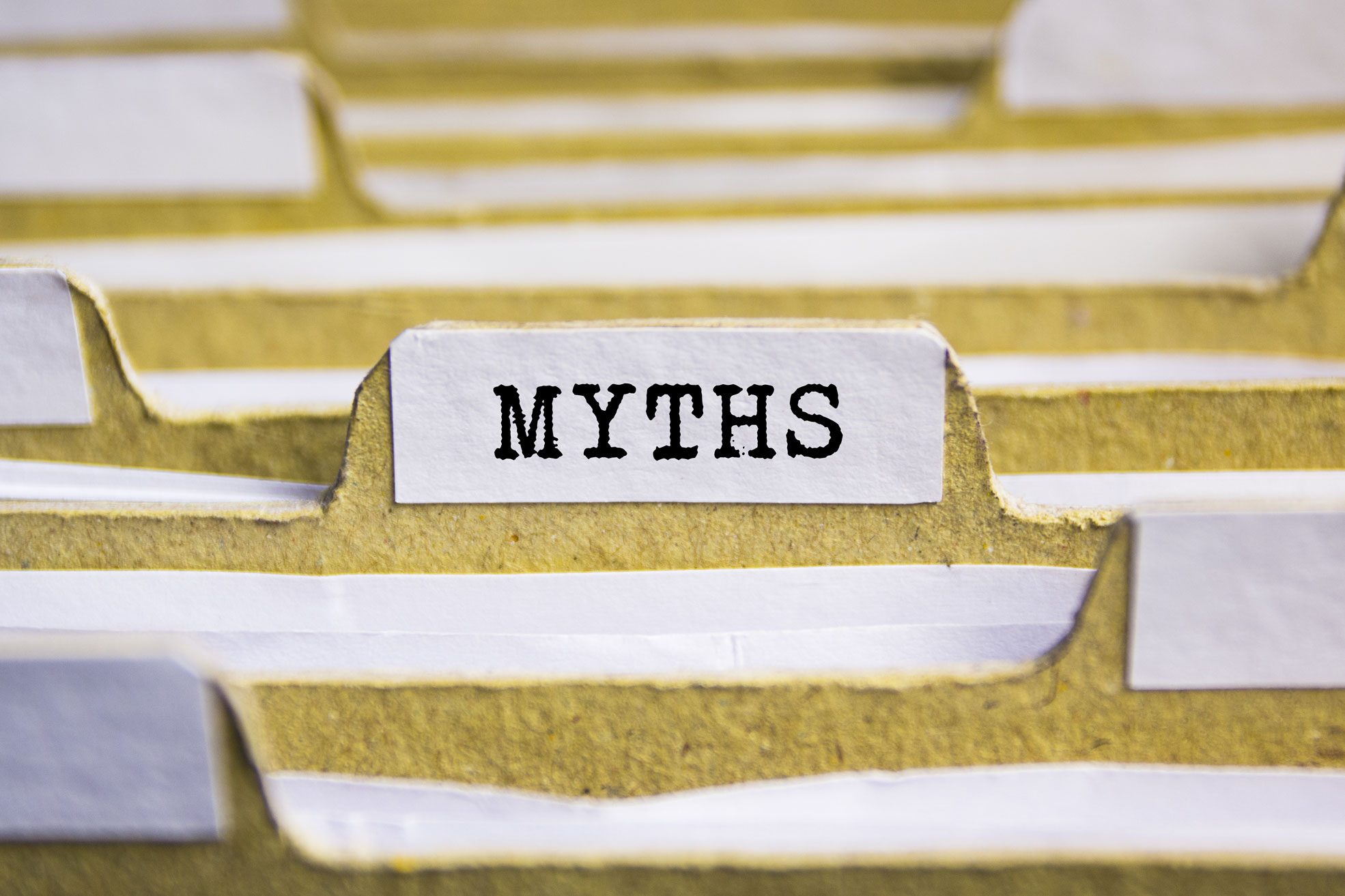According to CNBC.com, 93 percent of millennials are aware of their credit score — the most of any generation — but that does not necessarily mean they know everything there is to know about credit. However, credit score myths abound. Let’s have a look at five of them, which ones still hold true, and which ones are false. Understanding these can help you build a stronger credit profile and ultimately higher scores.
1. Myth: Checking my credit always lowers my credit score.
Checking one’s own credit is known as a “soft pull,” which does not affect a credit score. That’s because checking your credit does not necessarily signal intent to apply for credit; you might simply be interested in which items are listed on a report because you want to check for accuracy and any errors. However, when a bank or lender checks your credit, that’s known as a “hard pull” and does affect your credit. When a lender checks a consumer’s credit, it signals that a credit application is underway because the consumer needs credit or a loan.
2. Myth: Closing a credit card account improves my credit score.
Many people believe that closing a credit card account — even for one with a zero balance — is a fast way to improve a credit score, but this is not the case. The reason for this is because of credit utilization, an essential determinant in a credit score that measures how much credit you’re using vs. how much credit you have available. Simply put, the lower your credit utilization, the higher your credit score.
If you close the credit card account, you lose that “extra” unused credit that might be keeping your credit utilization low. It’s also not the best idea to close your longest-running form of credit without a strategic plan. However, it’s generally good advice to close a credit card that you’re not using but for which you’re paying a high annual fee. Instead of closing it, you can call the credit card company and have them switch you to a no-fee card with the same — or higher — credit limit so that your utilization is not affected.
3. Myth: Making a partial payment is better than making a late payment.
Of course, making any level of payment is better than skipping altogether, but a partial payment isn’t as beneficial as people think. Banks and lenders report late payments when they are 30 days past due and late payments stay on a credit report for as long as seven and a half years, which can sting. If a partial payment is made less than the minimum payment required, the bank or lender can still report the unpaid portion as late. However, if you cannot make the minimum payment, call the bank as soon as possible to make payment arrangements. The bank may not report the partial payment as late when a good-faith effort is made.
4. Myth: Selecting ‘credit’ while using my debit card helps raise my credit score.
Though you might see the Mastercard or Visa logos at the cash register or on the e-commerce checkout page, paying with a debit card does not affect your credit score. Using a debit card connected to the funds in your checking account, and any payments made with a debit card, are not reported to the credit bureaus.
5. Myth: Paying rent or a cell phone or utility bill regularly helps build my credit.
This one easily confuses many people because landlords, cell phone companies and utilities regularly run our credit when we submit applications or open new accounts with them. It’s obvious why they do this: they want to know that you will pay your bills on time. However, the opposite is true: if you do not pay your rent or cell phone or utility bills on time, then your credit will be affected. If bills are in arrears after a certain period of time, the landlord, cell phone, or utility company can place your account into collections and collection agencies regularly report their accounts to the credit reports, thereby affecting your score. To prevent this from happening, agree to payment arrangements.
Better monitoring with ScoreMaster®
In the complex world of credit scores, it’s important to understand the different scores and how credit behaviors have impacted these scores over time. ScoreMaster® also helps consumers understand the impact of applying, paying, or spending on a credit report. This adds to much clearer transparency needed for decision-making, especially with large purchases.
Jake Wengroff writes about technology and financial services. A former technology reporter for CBS Radio, Jake covers such topics as security, mobility, e-commerce, and IoT.
Sources
CNBC.com – 93% of millennials are aware of their credit score
Equifax – Credit Myths and Facts You Should Know
